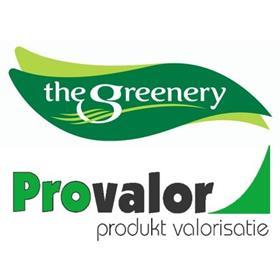
Netherlands-based fresh produce company The Greenery has entered into a joint venture with Dutch processing specialist Provalor to use up and market left-over product from the horticultural sector.
According to a statement released by both companies, the venture will use excess product – mainly greenhouse vegetables – to produce vegetable juices and natural food colourings in bulk.
The move is expected to generate 'substantial positive returns' for the entire horticultural food chain, the companies said, as well as helping to cut costs considerably and enabling both groups to improve their operations in terms of environmental sustainability and social responsibility.
The Greenery is set to take a majority interest in the joint venture, although the vegetable juices and natural food colourings produced will be bottled and processed by other companies before being marketed as consumer products.
'The venture’s activities will be launched on the international business-to-business market and will be established in the heart of the Westland, the Netherlands’ largest greenhouse area, enabling easy access to the residue flows of all of the region’s growers,' a spokesperson for the group explained.
Assuming final responsibility for the venture, The Greenery plans to offer its expertise in terms of logistics and operational activities, while Provalor itself will employ its knowledge and experience of marketing excess vegetable production to oversee the technical, sales and distribution side of the business.
The Greenery and Provalor expect to embark on the investment phase of the project this coming autumn, with the first batch of Dutch-origin tomato and sweet pepper juice due to be produced at the beginning of 2011.
Channelling product flows
According to figures released by The Greenery, the Netherlands grows approximately 1.6m tonnes of greenhouse vegetables every year.
After sorting, about 2.5 per cent of these are rejected and not consumed, and currently the majority of these 40,000 tonnes are simply turned into compost, resulting in a substantial loss of value.
The Greenery and Provalor plan to collect left-over product flows from growers of sweet peppers, tomatoes and other vegetables at a Greenery-owned site in the Westland area.
The produce will subsequently be reprocessed into vegetable juices and natural food colourings to be sold to bottling companies and the processing industry.
'Using the residual products of growers adds new value to the food chain and saves costs in the area of residue flow processing and transportation,' said the spokesperson.
The new joint venture is based on an innovation programme, partly sponsored by the Commodity Board for Horticulture, the Technology Fund for Horticulture, Syntens and the Rabobank Westland Innovation Fund, under which Provalor has achieved various technological breakthroughs since 2008.
In cooperation with a number of partners including Lenssen Vul- en Sluittechniek, these breakthroughs have enabled class-three greenhouse vegetables to be reprocessed into consumer products.
The spokesperson added: 'This initiative enables both companies to pursue the principle of sustainable entrepreneurship within the horticultural industry. Reusing left-over flows results in enormous cost savings on the transportation of residual products and compost.'
Estimates have shown that a total distance of 750,000km is covered every year to transport compost.
By collecting and recycling these left-over flows centrally, The Greenery and Provalor aim to achieve 'an enormous reduction' in transportation and CO2 emissions, reducing their impact on the environment and increasing yields within the horticultural food chain.
'This will result in an anticipated reduction of organic left-over materials of approximately 70 per cent,' the spokesperson concluded. 'The pulpy residual matter remaining after pressing juice and natural colours can be used to produce bio-active components, and the left-overs can then be fermented to produce bio-gas.'



